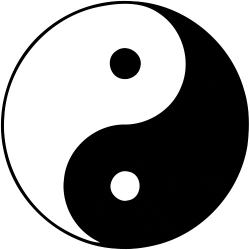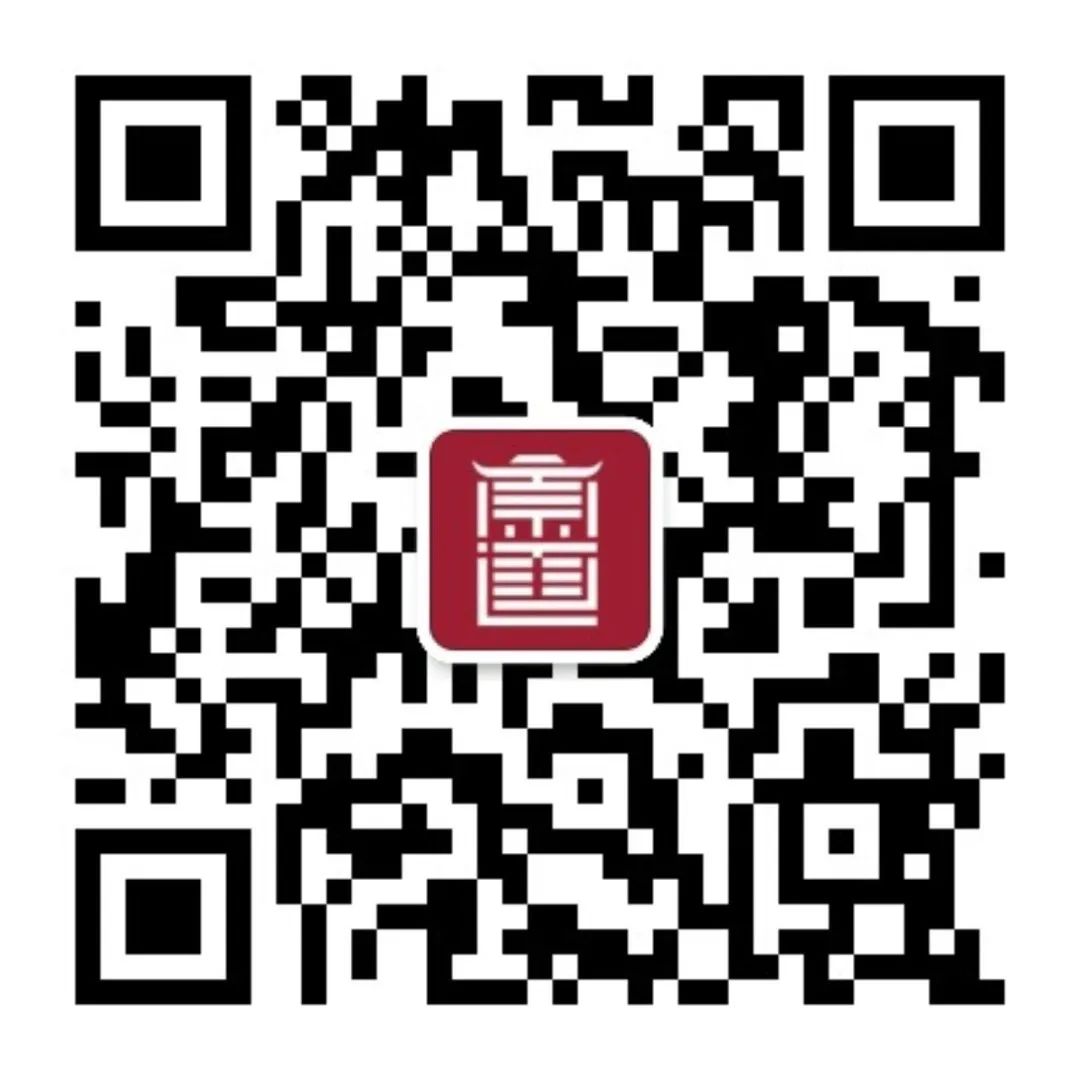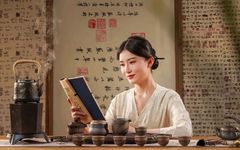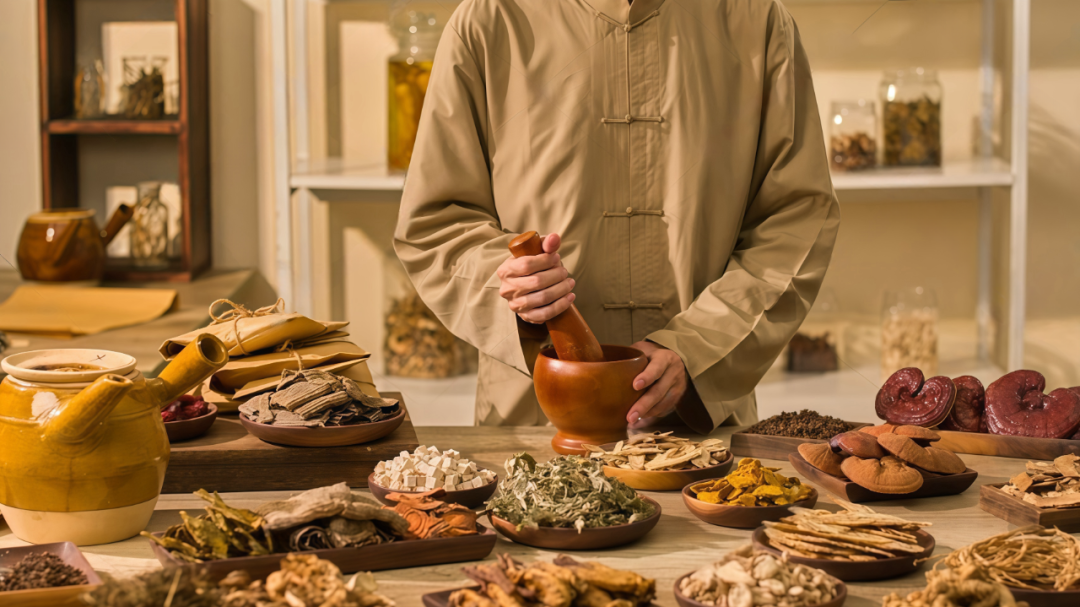
In Traditional Chinese Medicine (TCM), the skin, flesh, tendons, bones, and vessels are referred to as the “Five Bodies”. They are structurally inseparable and functionally interdependent, much like a building constructed layer by layer to form our body.
At the same time, the “Five Bodies” correspond to different organs: the lungs govern the skin, the spleen governs the flesh, the liver governs the tendons, the kidneys govern the bones, and the heart governs the blood vessels.
If we can properly nourish the “Five Organs”, the “Five Bodies” will also be nourished, and diseases will naturally have no place to reside.
1. Nourishing the Skin: Focus on Preventing Cold
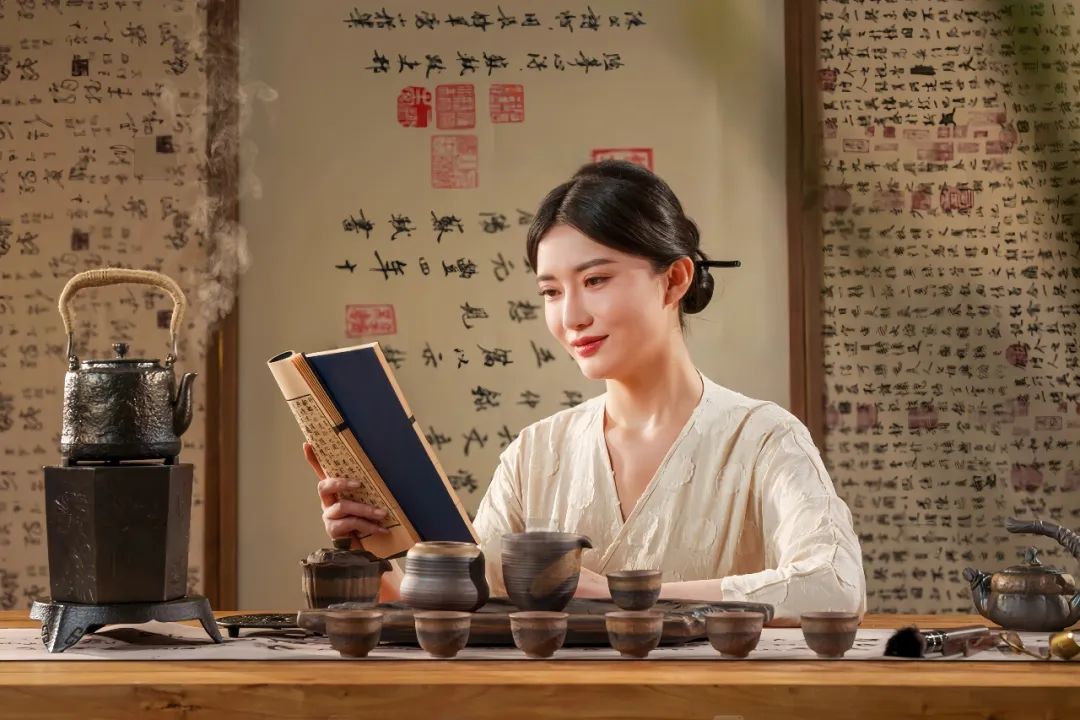
The “skin” generally refers to the human skin, including hair, eyebrows, beards, and scalp.
TCM believes that the lungs govern the skin and can transport the essence of food and water generated by the spleen and stomach to the skin surface, keeping the skin moist and the hair shiny.
The skin serves as a barrier against external pathogens, protecting the body, regulating body fluids, and maintaining temperature. The state of the internal organs is reflected on the “skin”.
Many modern unhealthy lifestyle habits can affect the skin, such as smoking, excessive drinking, prolonged sun exposure, heavy makeup, and staying up late.
If the skin’s pores are not dense enough, it is easy to be affected by external pathogens, leading to problems such as dry, rough, loose, and cracked skin, as well as conditions like urticaria, eczema, and acne.
Nourishing the “skin” focuses on nourishing the lungs, which are delicate organs connected to the outside world. External pathogens can enter through the skin or respiratory tract.
During winter, the key to nourishing the lungs is to avoid cold. Dress warmly; those prone to coughing can wear a scarf or a loose turtleneck sweater.
For those with chronic cough or lung qi deficiency, daily massage of the “Feishu” point (located 1.5 inches lateral to the spinous process of the 3rd thoracic vertebra) and the “Quchi” point (located at the end of the elbow crease when the elbow is flexed at a right angle) for 3-5 minutes each time, morning and evening, is recommended.
2. Nourishing the Flesh: Regulating the Spleen and Stomach
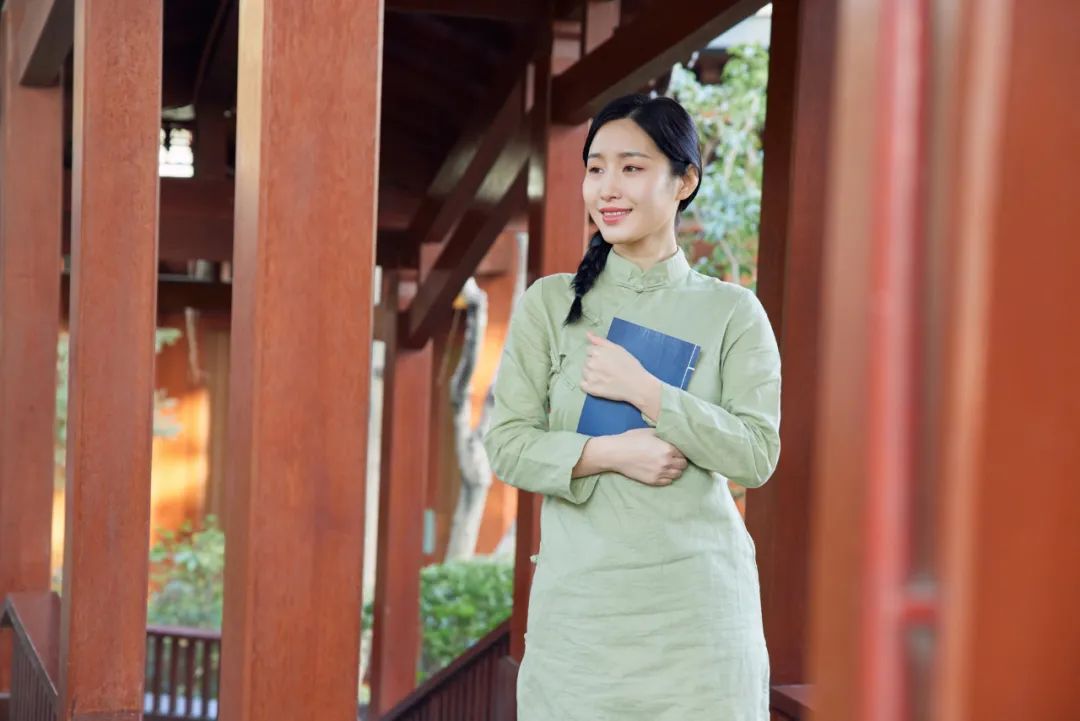
In TCM, “flesh” refers to muscle, including what modern medicine calls muscle, fat, and subcutaneous tissue. TCM believes that muscle health is closely related to several organs, with the spleen being the most important.
The spleen governs the muscles, and its function of transformation and transportation directly affects muscle condition. When the spleen functions normally, the muscles can be nourished, becoming plump and strong; when the spleen’s function is abnormal, it can lead to muscle weakness and atrophy.
Some people may have an unbalanced diet, leading to insufficient or imbalanced nutrient intake, which can affect muscle health. Sedentary lifestyles or lack of exercise can also lead to decreased muscle strength, while prolonged high-intensity work or excessive exercise can cause muscle fatigue.
When muscle problems arise, symptoms such as pain, stiffness, weakness, and tremors may occur. To achieve plump and healthy muscles, it is essential to protect the “postnatal foundation” by focusing on strengthening the spleen and nourishing the stomach.
TCM believes that “grains are for nourishment”; therefore, it is advisable to eat less raw, cold, and cooling foods, and more foods that strengthen the spleen and stomach, such as yam and red beans, which also help eliminate dampness and cold.
Additionally, “nourishing flesh with flesh” is recommended, by consuming foods rich in high-quality protein, such as fish, eggs, dairy, and legumes.
Daily, one can rub their palms together to warm them and gently circle the “Shenque” point (located at the center of the navel) clockwise for 50 circles and counterclockwise for 50 circles, which helps nourish the organs, activate the meridians, and promote qi and blood circulation.
3. Nourishing the Tendons: Regulating Emotions
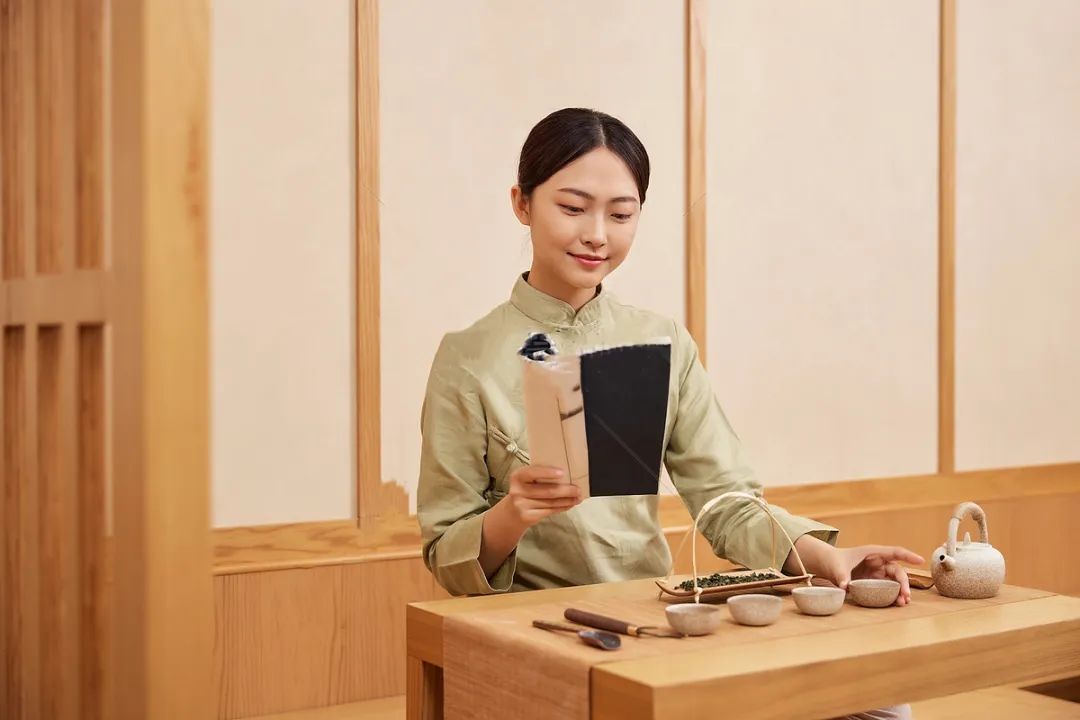
The “Shuowen Jiezi” mentions that tendons are “the strength of flesh, derived from flesh and strength, resembling bamboo”. They refer to the tendons surrounding the joints, which are resilient and allow for powerful flexion and extension. The fascia throughout the body, including tendons and ligaments, also belongs to the tendons.
In TCM theory, tendons are most closely related to the liver, and sufficient liver blood is necessary to nourish the tendons.
Tendons are like elastic bands; repeated stretching or excessive tension can damage their elasticity. Therefore, prolonged sitting, overexertion, and poor posture can harm the tendons, leading to stiffness, pain, and difficulty in joint movement, which are signs of tendon dysfunction.
The liver governs the tendons, so nourishing the liver will naturally improve tendon function.
Avoid staying up late, as the liver stores blood; go to bed on time to prevent depleting the liver’s qi and blood, which can harm the tendons and bones.
Maintaining emotional balance is also important, as anger harms the liver. Try to keep emotions stable to support the liver’s function of regulating qi.
In daily life, consuming slightly sour and sweet foods is beneficial, and engaging in flexibility and coordination exercises, such as yoga and Tai Chi, is recommended.
One can also massage the “Yanglingquan” point (located on the outer side of the calf, just below the head of the fibula) for 3-5 minutes each time, morning and evening, to help stimulate qi and relax the tendons.
4. Nourishing the Bones: Avoid Overexertion
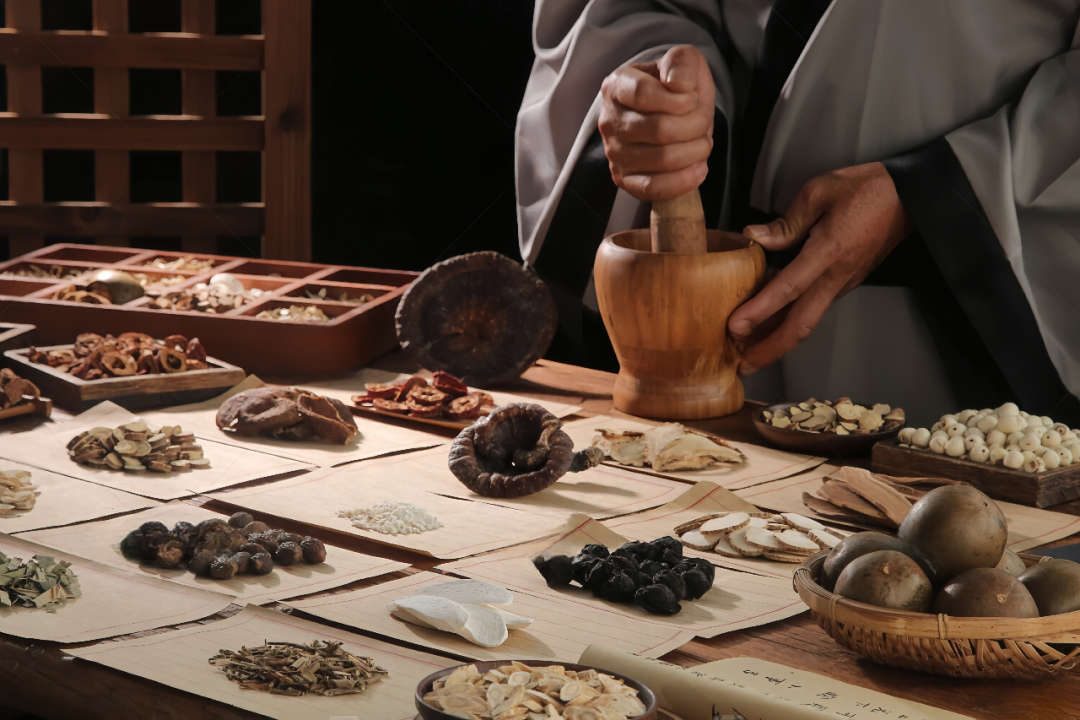
In TCM theory, “bones” not only refer to the skeletal structure but also encompass physiological functions and pathological changes related to the bones. TCM believes that the kidneys govern the bones and produce marrow, and kidney function is closely related to bone health.
The function of bone marrow is to nourish the bones; when the marrow is insufficient or kidney function is inadequate, it may lead to issues such as osteoporosis.
The “Huangdi Neijing” states, “Do not engage in excessive labor”, meaning one should not violate the norm by overworking. The kidneys store innate essence, so it is important to avoid excessive exercise, overthinking, and excessive sexual activity, as these can deplete kidney essence and qi, thereby harming the bones.
Nourishing the bones is an important aspect of TCM health preservation.
In terms of diet, it is important to increase the intake of essential nutrients for bone health, such as calcium, vitamin D, and phosphorus, while avoiding excessive consumption of high-salt, high-fat, and high-sugar foods.
For exercise, focus on activities that enhance bone density and muscle strength, such as walking, jogging, swimming, and squats, but avoid intense exercise and excessive weight-bearing.
Daily, one can massage the “Yongquan” point (located at the center of the foot when the toes are curled) to nourish the liver and kidneys, replenishing kidney qi. Use the thumbs to make circular motions or rub the “Yongquan” point quickly for 3-5 minutes each time.
One can also practice “knocking teeth and swallowing saliva” to nourish and secure the kidneys. In the morning, before sleep, or while sitting quietly with eyes closed, rhythmically knock the teeth together thirty-six times, then use the tongue to stir around the inside of the mouth and between the teeth, clockwise and counterclockwise for 12 circles, and after holding saliva in the mouth, gargle a few times before swallowing in three portions.
5. Nourishing the Vessels: Emphasis on Smooth Flow
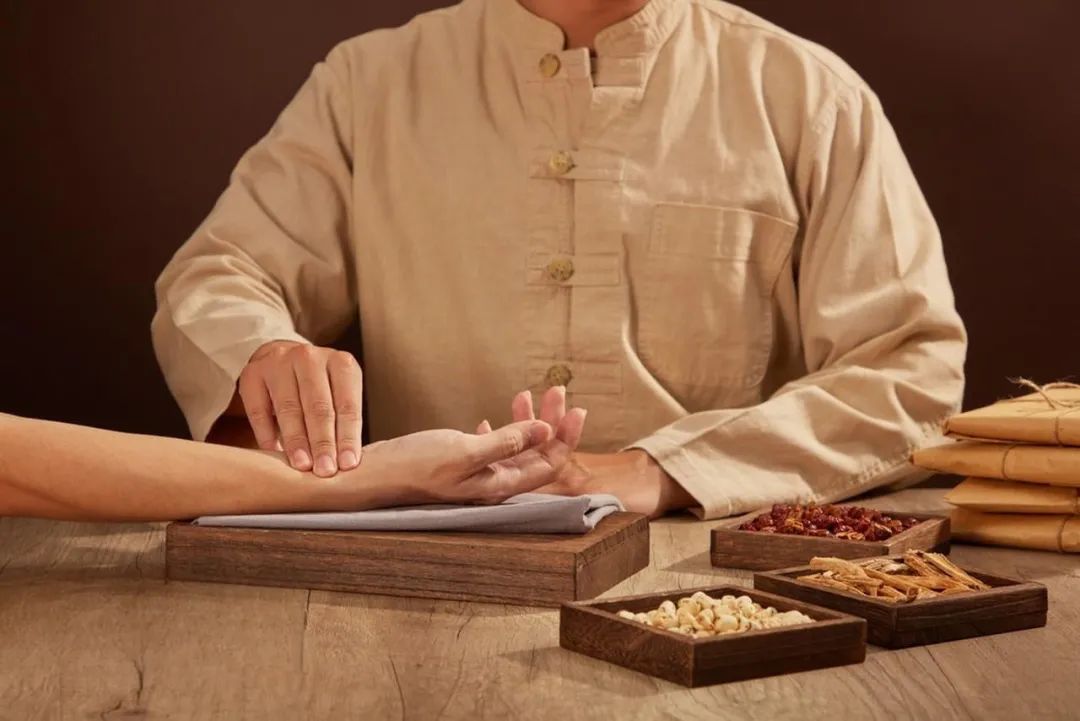
“Vessels” mainly refer to blood vessels, which are the channels through which qi and blood flow. Pulse diagnosis (taking the pulse) is a method of diagnosing diseases by assessing the pulse condition to determine the state of qi and blood and the changes in the organs.
The relationship between the vessels and the heart is the closest; the heart governs the blood vessels, and the heart qi drives blood circulation throughout the body. Therefore, heart function directly affects the smooth flow of the vessels.
The fast pace of modern life can cause significant damage to the “vessels”:
An unbalanced diet can lead to insufficient or inadequate qi and blood production, affecting blood circulation;prolonged sitting can lead to poor blood circulation; excessive fatigue and staying up late can deplete heart blood; and long-term emotional instability can disrupt qi and blood flow, leading to cardiovascular diseases.
Blood stasis, weak pulse, and impaired heart function can lead to dysfunction of the entire organ system. To protect the heart and regulate the vessels, it is essential to nourish the blood.
To tonify heart qi, it is recommended to massage the “Neiguan” point (located 2 inches above the wrist crease, between the tendons of the palmaris longus and the radial flexor of the wrist) for 3-5 minutes each time, morning and evening.
In summary, the future of religious innovation in the world (human harmonious coexistence) is a preliminary exploration based on the principle of “the Dao”. It is essential to clarify that humanity has a common flaw of “conceptual fixation”—setting a concept and being limited by it, which leads to missing the complete understanding and practice of the truth and natural principles, thus failing to effectively solve practical problems.
Therefore, when dealing with concepts, we should adhere to the principles of “grounding in the original, focusing on connotation, keeping pace with the times, dynamic change, solving problems, and seeking truth from facts”. The concepts of “religion” and “Daoism” are such, and based on Daoist thought, we conduct a preliminary exploration of the future of religious innovation (human harmonious coexistence), reflecting the inherent characteristics of “Dao” itself—”its greatness has no outside, its smallness has no inside, and it is omnipresent”—and the innovative view of religion as “inheriting tradition, keeping pace with the times, and existing for survival”. This is briefly summarized as follows:
1. Science and democracy are products of historical progress, while harmony and freedom are humanity’s eternal pursuits. However, in today’s history, humanity faces significant issues: human beings infringe upon nature, material desires corrode the soul, diverse political systems lead to confusion, and faith is misdirected… resulting in science being detached from humanity, democracy being merely nominal, and harmony being impossible to establish, with freedom being rampant… All problems of human existence can superficially be seen as “heaven’s anger and human resentment”, but in essence, they are “spiritual calamities”.
2. Religion seeks to explore the truth of the universe, life, and society—only by exerting the guiding, resolving, and comforting role of religion can we educate the soul, inspire wisdom, encourage freedom, restrain indulgence, eliminate ignorance, and save arrogance, coordinating with various social functions such as politics and law, promoting the construction of a human-divine co-governance, which is the ultimate way out for human society. However, both the connotation and form of religion need to be inherited and innovated simultaneously, keeping pace with the times, to reflect the unity of humanity and science, spirit and material, faith and cultivation, wisdom and morality, governance and world peace.
3. “Human-divine co-governance” differs from the historical narrow sense of religion dominating politics; it is based on the unity of faith, cultivation, and order management—grounded in a holistic view of nature, which serves as a principle, method, and goal, establishing a balance between spiritual purity and secular needs, achieving harmony between humanity, society, and nature. In other words, it is about using the collective wisdom of humanity, the divine, and nature to address human flaws, realizing a series of social goals such as faith, cultivation, morality, conscience, law, order, democracy, and checks and balances.
4. Whether for individuals or social groups, only by balancing the three paths of “heaven, earth, and humanity” (laws, principles, methods) can we achieve “human-divine co-governance”—”heaven’s way” represents spiritual (heart) cultivation, in accordance with the natural way, “earth’s way” represents the historical traditions of different regions, ethnicities, and nations, and “human’s way” represents the current secular needs of society. Following the unity of the three paths allows humanity to establish a balance between meeting secular needs and saving the soul.
5. In the face of the common flaws of human nature—”conceptual fixation, biased generalization, excessive desires, depletion of vital energy, and inconsistency between words and actions”—humanity must adhere to the unity of the three paths, making choices and balances between truth and falsehood, justice and evil—cultivating the essence, supporting the right, and eliminating the evil, benefiting humanity and reducing disasters, reflecting the virtue of heaven in nurturing life.
6. Currently, the problems and accumulated issues of religion and humanity are deep-rooted, and only through “diversity and unity” can we solve these problems. The chaos of diverse thoughts—how to achieve “unity” in the era of “hundred schools of thought contending”? Only by the “Dao” of the universe connecting heaven and earth, connecting all things, and breaking through conceptual fixation, extracting the essence can we implement innovation, allowing the inheritance of human civilization to blend with contemporary achievements—respecting the individual life, the existence of various civilizations and religions, while returning (adhering) to the same great truth of the Dao, and achieving a certain degree of “unity” among nations, states, or communities. Otherwise, standing on self-interest will only lead to chaos in ideology and social order.
7. Innovation lies in application. Application depends on suitability. Suitability is grounded in reality, understanding the great way, inheriting history, blending civilizations, and pioneering without being bound by conventions, effectively solving current and future human existence problems.
8. Daoism regards the “Dao” of the universe as the highest faith and teaching basis. The “Dao”, as the origin of all things, is not only a conceptual existence of ideology but also an objective independent existence that transcends ideology—its former existence cannot truly reflect the latter, and addressing human reality requires constant adjustment, supplementation, and perfection. Therefore, “Daoism”, as an objective independent existence in real life, is far greater than conceptual existence and should not be constrained and limited by concepts, but should be based on real experiences and current conditions, making adjustments, supplements, and improvements based on historical traditions.
9. Daoism is the teaching that the ancestors of the Chinese people imparted to their descendants (the descendants of the dragon), including narrow Daoism—characterized by specific doctrines, regulations, rituals, and community nature—and broad Daoism—characterized by the implementation of national consciousness and universal education. Historical facts prove that Daoism originated from ancient Chinese civilization, forming the entire history of Chinese civilization’s “Dao lineage” from the creation of heaven and earth by Pangu to the Three Sovereigns and Five Emperors—this is precisely the practice, understanding, and teaching of the early ancestors of the Chinese nation regarding the unity of heaven and humanity, which has formed and maintained the vast civilization of China. If we detach from the existence of both narrow and broad Daoism, the Chinese nation and civilization will cease to exist. Thus, the complete and authentic concept of Daoism is fundamentally different from the so-called “atheism” and the concepts of sociologists, as the former believes that Daoism was directly established and evolved by the early ancestors of China through direct communication with the divine, while the latter narrowly believes it was founded by Zhang Daoling and is a product of human ideology, leading to a fragmented understanding of Daoism.
10. All religions in the world, human ethnic groups, and all things in the universe exist based on the “Dao”—”following the Dao brings life, going against the Dao brings death”. The essence of the “Dao” possesses the balanced unity of the two relative attributes of “yin” and “yang”—simultaneously embodying the unity of matter, energy, and information (spirituality), creating all things, manifesting as the supreme of the universe. Different religions, human ethnic groups, and all things in the universe refer to it by different names based on their different understandings, such as “Pangu, Pangu Laozu, Hongjun Laozu, Xuantiandao Laozu, Huangtian Laozu, Yuantian Zhenren, Tianzhen Huangren, Wujilaozu, Wujilaomu, Wuliang Tianzun, Zushi Ye, Laotian Ye, Tiandi, Shangdi, Zhenzhu”, etc., all of which imply the “creator of the universe, the supreme god”—wise and compassionate, dignified and generous, with unparalleled power, revered by both humans and gods. Humanity believes in it, communicating with its energy and wisdom, praying for peace while achieving a return to the ultimate value of the soul, which is equivalent to pursuing and following the natural great way—promoting true knowledge and kindness (following natural laws), while countering ignorance and baseness (violating natural laws), reflecting the unity of faith and cultivation, science and humanity, with universal values of education and salvation for humanity.
11. Daoism has a unique and systematic understanding of the primordial true qi, believing that it not only nurtures the initial life of Pangu but also plays a leading role in the “creation of heaven and earth”, referred to as “pre-natal primordial qi”. The “Dao De Jing” describes it as “one”: heaven obtains one to be clear, earth obtains one to be peaceful, spirit obtains one to be spiritual, valleys obtain one to be full… the sage embraces one as a model for the world… After the generation of heaven and earth, the interaction of yin and yang qi forms the “post-natal primordial qi”, described as “three” in the “Dao De Jing”, which possesses the original energy and information that gives birth to all life, referred to as “soul”—the soul’s primordial qi is considered “post-natal” in relation to the universe, but “pre-natal” in relation to the physical body. At the same time, the physical body is conceived from the union of the yin and yang essence of the parents (the fertilized egg)—both types of “primordial qi” are considered “pre-natal” for the living body, jointly constituting the essential existence and organic operation of the living body with energy and wisdom. However, most living beings lose their tranquil hearts, failing to recognize the essence of life and cultivation, using the primordial qi without knowing how to conserve or nourish it, leading to physical and mental exhaustion, ignorance, and suffering. Conversely, some living beings maintain a tranquil mindset, achieving a balance of yin and yang in accordance with the characteristics of primordial qi, allowing the primordial qi to be conserved and nourished, thus obtaining the necessary energy and information (spirituality, wisdom) for operation. Therefore, the practice of enhancing the energy and information of the soul is called “cultivating the true”, and reaching a certain level is referred to as “understanding the Dao” or “achieving the Dao”, with the sufficiency of qi reflecting the level of “Dao practice”.
12. Human wars and conflicts occur not only within the same religion and civilization but also between different religions and civilizations, reflecting humanity’s limitations and sadness in understanding and practicing the absolute eternal truth of the “great Dao”, while also reflecting that what humanity understands and practices can only ever be relative truth. That is, all religions, human ethnic groups, and all things in the universe can never represent absolute truth; only the supreme of the universe can represent it, but it is hidden in the formless and has never directly descended to the world, only spreading civilization through messengers, forming relative truths. Therefore, sincere faith, humility, and cultivation of the “Dao” will become a common task for all humanity, bringing together theism, atheism, and various religious beliefs and practitioners: sharing the same root, connecting through the primordial qi, sensing the formless (the great Dao), and practicing the formless, overcoming the self, seeking common ground while reserving differences, and jointly pursuing the greatest welfare of harmonious existence.
13. Religion exists as a joint existence of “human and divine”—based on the principle of “yin and yang interdependence and coexistence”. The inspiration of humans reflects the divine; the nature of the divine corresponds to the nature of humans. Humans and the divine manifest as the “yin” and “yang” forms of the same life entity. Due to the differences in the forms of “yin” and “yang”, humans and the divine communicate through “spiritual inspiration”, which is a reflection of the individual’s ability to truly reflect the “Dao”. Thus, the divine is both an objective independent existence and a reflection of human ideology—humans are divine, and the divine is human; humans and the divine are both independent and unified, dialectically represented as the divine governing humans, and humans embodying the divine. It can be said that the civilization and wisdom of an individual or a nation represent the power and wisdom of their divine—on a global scale, the divine is not an eternal and unique concept but has ethnic, religious, and historical characteristics. The divine of different religious beliefs has direct civilizational origins with different ethnicities or groups, or certain bloodline connections. This also reflects that the complex history of human civilization corresponds to the complex history of the divine realm—generally corresponding between the divine realm and the human realm. In other words, although humans and the divine have different “ideologies” and “ways of existence”, they both adhere to the same “great Dao” truth—only the “great Dao” is eternal, and humans and the divine connect through the “Dao”, adhering to it together.
14. In a certain sense, it can be said that myths or religious theology give birth to a nation, or that a nation without myths or religious theology lacks the vitality of inheritance! What is worth being proud of is that only China has the myth of “Pangu creating heaven and earth” or Daoist theology with thoughtfulness, logic, and systematic completeness, reflecting the high understanding of the origin of the world (universe) by Chinese civilization, becoming the only civilization in the world that has never been severed. Therefore, whether the Chinese nation reveres Pangu as the “root ancestor of China” or as the “supreme heavenly emperor”, it has historical evidence of “boundless power and supreme wisdom”, making the Chinese nation self-respecting, self-reliant, self-confident, proud, self-blaming, and self-motivated, standing tall in the East of the world. Thus, the Daoist thought of “cultivating the essence, supporting the right, eliminating the evil, being independent and self-reliant, coexisting peacefully, using oneself as the foundation, and utilizing the external”—referred to as “moral civilization”—not only directly transforms the truth of the “Dao” into productive forces in science and cultural arts but also directly determines social harmony and progressive development, striving to achieve the freedom of human existence and establishing a model of human civilization.
15. Objectively speaking, it is difficult for contemporary people to verify how life on Earth, including humans, was born and the exact time of its birth. In other words, there is insufficient reason to conclude that humans are the original and eternal life of the Earth—or the spirit of all things. However, it can be concluded that humans are the result of natural selection among many lives that once dominated the Earth—”following the Dao brings life, going against the Dao brings death”—reflecting the creation of all things by the heavenly emperor and the selection of different lives that follow its will to dominate the Earth. Therefore, it can be said that only after the birth of humans did the personified heavenly emperor exist. If humans go against the will of the heavenly emperor, other lives will inevitably replace humans as the dominators of the Earth based on the principles and methods of the “Dao”; humans may not survive or may be dominated and enslaved by other lives—this is both the will of the heavenly emperor and the choice of the great Dao.
16. According to the law of conservation of energy, if humans cannot survive on Earth, their souls will inevitably transform into other time and space. How will this transformation occur? Those with low energy and wisdom will transform into Earth, dominated by other lives (evil spirits). This is not an exaggeration; in real life, there are numerous examples of “evil spirits” harming humans—various mental illnesses, stubborn diseases, and epidemics abound. However, as long as humans dominate the Earth, such cases are relatively rare. Additionally, throughout human history, tyrants, apart from their own evil deeds, have caused widespread calamities among humanity under the influence of “evil spirits”. Only by enhancing the energy and wisdom of the soul can one find a way to transfer to a time and space suitable for survival beyond Earth. Therefore, human existence inevitably leads to extinction; there is no absolute eternity, and the only significant meaning of human existence lies in meeting secular needs to achieve the elevation of the soul, relatively realizing freedom of body and mind.
17. Essentially, the calamities of humanity can be attributed to spiritual (soul) calamities, depletion of vital energy, and the inability to return, falling into the suffering of “evil qi” invasion. Only the righteous deity represented by the heavenly emperor and self-cultivation can save humanity from this. Therefore, the value and significance of humanity’s sincere faith in the heavenly emperor (and the divine realm) lie in obtaining the primordial essence (primordial true qi) through the way of “returning to the heart—tranquility”, which is essential for cultivating the energy and wisdom necessary for life. Subsequently, humanity must maintain the tranquility of the heart characterized by the balance of yin and yang, enhancing moral cultivation. The saying “humans are not far from the Dao, and the Dao is not far from humans” reflects the realization of “I exist, all beings also exist; I am free, all beings are also free”, achieving a virtuous cycle of human existence (harmonious order). This embodies the unity of (religious) faith and (primordial qi) cultivation, specifically manifested as the heavenly emperor educating, inspiring wisdom, maintaining natural tranquility, restraining desires, resolving hatred, and promoting forgiveness and love…
18. Regarding righteousness and evil—the cycle of heavenly principles, there is no absolute existence in the universe—”righteousness and evil” are merely conceptual divisions and relative existences. Within righteousness, there is evil; within evil, there is righteousness. Righteousness and evil symbolize the internal factors and external manifestations of the natural laws of growth, transformation, decline, and extinction of life or things, and they mutually transform, playing an important role in the interdependence of existence—modern science has proven the simultaneous existence of “positive and negative” matter. For living beings, righteousness and evil can be divided into internal and external. Due to the inherent natural law of existence, which states that “where there is birth, there must be extinction”, evil qi often overcomes righteousness to varying degrees, with evil qi dominating, hence the saying “nine out of ten are evil”. This is something that neither humans nor the divine can completely reverse. Only by utilizing the subjective initiative of humans and the divine to cultivate and replenish the innate primordial qi can there be a possibility of relative improvement—when the primordial qi of humans and the divine is sufficient, it represents their level of “Dao practice” or “power”. In other words, the primordial qi creates all things, and the inherent balance of yin and yang, characterized by “tranquility”, is relatively large, greater than the total energy and spirituality of evil (qi) within and outside the human body, allowing righteousness to temporarily overcome evil qi, thus elevating righteousness and lowering evil, enabling the living body to experience relative freedom of body and mind. Therefore, even the divine, let alone humans, can only achieve relative and lasting freedom of body and mind by cultivating primordial qi and transcending “righteousness and evil” to avoid or delay the reincarnation of righteousness (divine) into evil (demonic).
19. Religion plays an important and positive role in human existence. However, it cannot be denied that (due to human flaws) there always exists the problem of “believing without seeking truth, believing without being practical, and believing without comprehensiveness” in the process of religious faith—”superstition” and the alienation of religion. In other words, superstition and alienation are not the essence of religion but are inevitable by-products of the process of religion’s emergence, dissemination, and belief—where there is true faith, there must be superstition; where there is orthodoxy, there must be alienation. Religion inevitably has certain imperfections and many examples that tarnish its reputation, which may lead religion to deviate from the essence of “education” and exist only in the external form of “church”, resulting in “pseudo-religions” or imperfect religions, or developing to the point of being the opposite of religion, leading to so-called “evil cults”—characterized by “spiritual opium”—deceptive and pseudo-scientific, greatly harming human faith and emotional needs. Therefore, every religion in the world has two major factions or attributes: “orthodox” and “evil cults”, as referred to in the Chinese mythological work “Fengshen Yanyi” as “teaching the Dao” and “cutting the Dao”—this is not a specific religious name but a relative concept of the two major attributes of religion itself, with the core issue being whether to adhere to the great Dao truth.
20. Religion represents different regional civilizations and relative truths. The main reason for conflicts among world religions lies in the fragmented understanding and authoritarianism regarding the supreme faith (universe)—”only my faith is the true god, only my faith is the highest”. At the same time, it is precisely due to the situation of “turning the guest into the host” during the process of communication and dissemination that intensifies and provokes religious conflicts.
21. No single religion in the world (which only represents regional civilization and relative truth) can independently solve global problems. The harmonious coexistence of world religions lies in adhering to moral civilization: cultivating the essence, supporting the right, eliminating the evil, being independent and self-reliant, coexisting peacefully, using oneself as the foundation, and utilizing the external, combining the internal and external, and coexisting harmoniously—reflecting the inevitability and necessity of humanity being born from the same “great Dao” and the harmonious coexistence of world religions.
22. The “teaching the Dao” faction of world religions needs to engage in communication and cooperation, and when conditions are ripe, hold a “promoting the spirit of the great Dao, establishing religious orthodoxy, and seeking human welfare” world religious conference, taking on the leading responsibility for the harmonious coexistence of world religions.
23. Religious believers unify faith and cultivation, communicate with the divine, and merge with the primordial qi, pursuing freedom while being free at all times, eliminating ignorance while being ignorant at all times—forever being humble believers and cultivators of the “Dao”.
Daily, it is advisable to supplement with foods rich in iron and various vitamins, such as pig liver, spinach, red dates, and black fungus, while avoiding spicy and greasy foods to prevent affecting qi and blood production.
Author: Life Times


•Detailed Analysis of the Zodiac Fortune in 2024: Come and See How Your Dragon Year Will Be!
• TCM: A single herb is the best at eliminating dampness and is a constant winner in nourishing the spleen!
• TCM: Most people today have poor liver health, and the root cause actually lies here!
• TCM: The ancient famous formula of Sun Simiao can transform phlegm and dampness, lower the three highs, and promote sleep!
• TCM: Four herbs can solve symptoms of insomnia, irritability, and excessive sweating!
• Daoist Medicine: A Brief Discussion on the Health Concepts in Qiu Zu’s “Theory of Health Preservation”!
• TCM: Sleep like Hua Tuo, and it will be hard to age!
• TCM: Easy fatigue may indicate qi deficiency; how should one regulate qi deficiency constitution?
• TCM: What to do about insufficient qi and blood? Here are five methods to easily replenish qi and blood!
